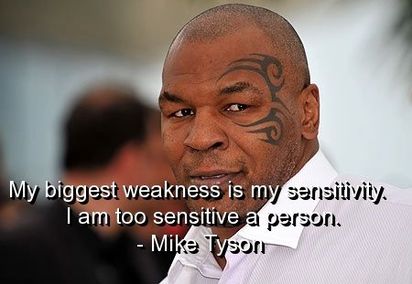
Stress, overwhelm and misunderstanding with colleagues are the most common problems that a highly sensitive person encounters at work. If you are a highly sensitive person, you need to learn to manage yourself when you are asked to play by other people’s rules. The good news is that there are thousands of HSPs who managed to build successful careers, and so you can, too – following these five tips (make sure you also check Part I for extra tips).
1. Do your stuff first
Problem: a highly sensitive person tends to pick up easily other people’s emotions, agenda and energy, and get locked in them.
Solution: Start you mornings pro-actively. First do what YOU need to do, and not what other people suggest that you do. Avoid morning meetings at all costs. Do not open your mailbox or answer phone calls until you have accomplished all the major things on your to-do list. Try to postpone any gossiping and/or socializing until after lunch time.
If you don’t do your thing when you still have a fresh mind, you will find it very difficult to accomplish to it later, as you will already be overloaded with other people’s problems.
2. Work is just work (as long as you repeat it to yourself)
Problem: highly sensitive people often find it difficult to separate professional and personal lives. HSPs end up working extra hours and over the weekend, because they either prefer not to say directly no, or can’t stop thinking about all the commitments they have or keep digesting whatever happened in the office.
Solution: You, and only you, need to establish boundaries. Decide where and when work starts and finishes, and tell others about it explaining briefly the reasons. Don’t make a big deal out of it, rather make it practical. For example, if you decide you will not read emails after working hours unless there’s an absolute emergency, in which case you can be reached on your phone. You may want to switch on an email autoreply after working hours that specifies how you can be reached and what a genuine emergency is. If you are not senior enough, make sure you run it past your boss first.
If you happen to work over the weekend, talk about it the next couple of days with your boss and clearly state it as an exception that should not repeat. If you regularly have to work over the weekend, it can mean two things. First, you might not be very good at time management, and you need some training. It’s perfectly normal to ask your boss or HR for it, and it’s probably a good idea to do that. Second option is that you are just not in the right environment. Sorry to say that, dear HSP, but the industries where you cannot manage your time and should be “always on” are not for you, as you will burn out really fast.
It will get better when you become more senior, because with seniority you get more flexibility to regulate your working hours. But if you are still in the early stages of your career, you need to be very careful selecting the type of work culture you are in.
As an HSP, you also need more than anyone else to learn the phrase “It’s just work”. It helps to have a circle of friends outside of your work environment, with whom you don’t talk about work-related subjects and who will repeat this phrase for you whenever you feel overwhelmed – it’s just work, dude, breath out.
3. Create your own job description
Problem: A highly sensitive person might often feel that her strengths are not used in her current job, and don’t feel fulfilled doing what they do.
Solution: The best career for a highly sensitive person is something related to helping other people and being able to manage their own time, so many of us end up freelancing or having their own business. Of course, it might seem more simple just to change the job, but you can also create a perfect job for yourself from a less perfect one by learning to sell your HSP qualities.
To do that, make a list of 10 things you are good at thanks to your sensitivity, and think how you can use them to change your job description. For example, are you good at establishing contacts with other people in person, because you understand what they really want? Make sure your boss understands the value for the business of personally contacting customers as opposed to sending them emails. Make a little business case, showing him how many people you managed to convert thanks to meeting them in person.
Be proactive, suggesting to do things that help you leverage your HSP qualities, such as compassion, attention to detail or vision.
4. Be socially aware
Problem: a highly sensitive person often prefers to have a close circle of friends and usually hates office politics. As a result, they are often left out of the promotion. Paradoxically, HSPs who are the most empathetic people and know more about others often end up having conflicts and being bullied.
Solution: As much as you hate it, just doing your job well is not enough. Because you are different from most people, they likely don’t understand what you are about, and our natural reaction to everything we don’t understand is to reject, or at least be cautious. You need to be aware of that effect, and minimize it. To do that, you need to have two steps for your communication strategy at work, both of which are equally important.
First, find people in the office who are similar to you and with whom you can have long meaningful conversations for hours. You will probably get naturally drawn to them anyways. They are your foundation, and you can seek out their moral support when you are feeling down.
However, you should not neglect the rest. There is a natural tendency to spend more time interacting with those who really understand you, especially when things get difficult. This is where most HSPs make a mistake, as they only choose a couple of people they are really close to, and ignore everyone else.
If you want to have a successful career, you need to create a wider support circle. You need to consciously set up some time every day to go out there and establish human contacts with your colleagues. You don’t have to get into politics, but you do want to make sure that people know a few things about you and they understand you BEFORE things get difficult not to create unnecessary speculations when they do.
5. Get daily routine in place
Problem: highly sensitive people get easily stressed and overwhelmed when they have to deal with multiple priorities at the same time. Change also makes them go off balance.
Solution: If you work in a rapidly changing environment, you need to have some stable elements you can hold to. This is especially valid for entrepreneurs, since many HSPs chose to become one not to play according to other people’s rules. Entrepreneurship is all about change and flexibility, but as an HSP, you crave for stability. Having routine and rituals is a perfect way to stabilize your nervous system in the most unstable circumstances.
Try to wake up, have a meal and go to bed at a particular time. Make certain things and timing in your daily calendar non-negotiable. For instance, I would assume that even if you are running late, cleaning your teeth in the morning is probably non-negotiable, and you will squeeze in 30 seconds to do that. You need to have more “teeth cleaning moments” throughout your day – predictable and reoccurring things that will happen to you no matter what. Sticking to the routine creates a sense of control over your life, and this is the most important thing that you need to build a successful career, dear HSP.
Read more tips from Part I - just click the link!
1. Do your stuff first
Problem: a highly sensitive person tends to pick up easily other people’s emotions, agenda and energy, and get locked in them.
Solution: Start you mornings pro-actively. First do what YOU need to do, and not what other people suggest that you do. Avoid morning meetings at all costs. Do not open your mailbox or answer phone calls until you have accomplished all the major things on your to-do list. Try to postpone any gossiping and/or socializing until after lunch time.
If you don’t do your thing when you still have a fresh mind, you will find it very difficult to accomplish to it later, as you will already be overloaded with other people’s problems.
2. Work is just work (as long as you repeat it to yourself)
Problem: highly sensitive people often find it difficult to separate professional and personal lives. HSPs end up working extra hours and over the weekend, because they either prefer not to say directly no, or can’t stop thinking about all the commitments they have or keep digesting whatever happened in the office.
Solution: You, and only you, need to establish boundaries. Decide where and when work starts and finishes, and tell others about it explaining briefly the reasons. Don’t make a big deal out of it, rather make it practical. For example, if you decide you will not read emails after working hours unless there’s an absolute emergency, in which case you can be reached on your phone. You may want to switch on an email autoreply after working hours that specifies how you can be reached and what a genuine emergency is. If you are not senior enough, make sure you run it past your boss first.
If you happen to work over the weekend, talk about it the next couple of days with your boss and clearly state it as an exception that should not repeat. If you regularly have to work over the weekend, it can mean two things. First, you might not be very good at time management, and you need some training. It’s perfectly normal to ask your boss or HR for it, and it’s probably a good idea to do that. Second option is that you are just not in the right environment. Sorry to say that, dear HSP, but the industries where you cannot manage your time and should be “always on” are not for you, as you will burn out really fast.
It will get better when you become more senior, because with seniority you get more flexibility to regulate your working hours. But if you are still in the early stages of your career, you need to be very careful selecting the type of work culture you are in.
As an HSP, you also need more than anyone else to learn the phrase “It’s just work”. It helps to have a circle of friends outside of your work environment, with whom you don’t talk about work-related subjects and who will repeat this phrase for you whenever you feel overwhelmed – it’s just work, dude, breath out.
3. Create your own job description
Problem: A highly sensitive person might often feel that her strengths are not used in her current job, and don’t feel fulfilled doing what they do.
Solution: The best career for a highly sensitive person is something related to helping other people and being able to manage their own time, so many of us end up freelancing or having their own business. Of course, it might seem more simple just to change the job, but you can also create a perfect job for yourself from a less perfect one by learning to sell your HSP qualities.
To do that, make a list of 10 things you are good at thanks to your sensitivity, and think how you can use them to change your job description. For example, are you good at establishing contacts with other people in person, because you understand what they really want? Make sure your boss understands the value for the business of personally contacting customers as opposed to sending them emails. Make a little business case, showing him how many people you managed to convert thanks to meeting them in person.
Be proactive, suggesting to do things that help you leverage your HSP qualities, such as compassion, attention to detail or vision.
4. Be socially aware
Problem: a highly sensitive person often prefers to have a close circle of friends and usually hates office politics. As a result, they are often left out of the promotion. Paradoxically, HSPs who are the most empathetic people and know more about others often end up having conflicts and being bullied.
Solution: As much as you hate it, just doing your job well is not enough. Because you are different from most people, they likely don’t understand what you are about, and our natural reaction to everything we don’t understand is to reject, or at least be cautious. You need to be aware of that effect, and minimize it. To do that, you need to have two steps for your communication strategy at work, both of which are equally important.
First, find people in the office who are similar to you and with whom you can have long meaningful conversations for hours. You will probably get naturally drawn to them anyways. They are your foundation, and you can seek out their moral support when you are feeling down.
However, you should not neglect the rest. There is a natural tendency to spend more time interacting with those who really understand you, especially when things get difficult. This is where most HSPs make a mistake, as they only choose a couple of people they are really close to, and ignore everyone else.
If you want to have a successful career, you need to create a wider support circle. You need to consciously set up some time every day to go out there and establish human contacts with your colleagues. You don’t have to get into politics, but you do want to make sure that people know a few things about you and they understand you BEFORE things get difficult not to create unnecessary speculations when they do.
5. Get daily routine in place
Problem: highly sensitive people get easily stressed and overwhelmed when they have to deal with multiple priorities at the same time. Change also makes them go off balance.
Solution: If you work in a rapidly changing environment, you need to have some stable elements you can hold to. This is especially valid for entrepreneurs, since many HSPs chose to become one not to play according to other people’s rules. Entrepreneurship is all about change and flexibility, but as an HSP, you crave for stability. Having routine and rituals is a perfect way to stabilize your nervous system in the most unstable circumstances.
Try to wake up, have a meal and go to bed at a particular time. Make certain things and timing in your daily calendar non-negotiable. For instance, I would assume that even if you are running late, cleaning your teeth in the morning is probably non-negotiable, and you will squeeze in 30 seconds to do that. You need to have more “teeth cleaning moments” throughout your day – predictable and reoccurring things that will happen to you no matter what. Sticking to the routine creates a sense of control over your life, and this is the most important thing that you need to build a successful career, dear HSP.
Read more tips from Part I - just click the link!
Want to learn more about careers for highly sensitive people?
Subscribe to my free coaching newsletter!
You'll get one email per month and I never share your address with anyone
Subscribe to my free coaching newsletter!
You'll get one email per month and I never share your address with anyone


